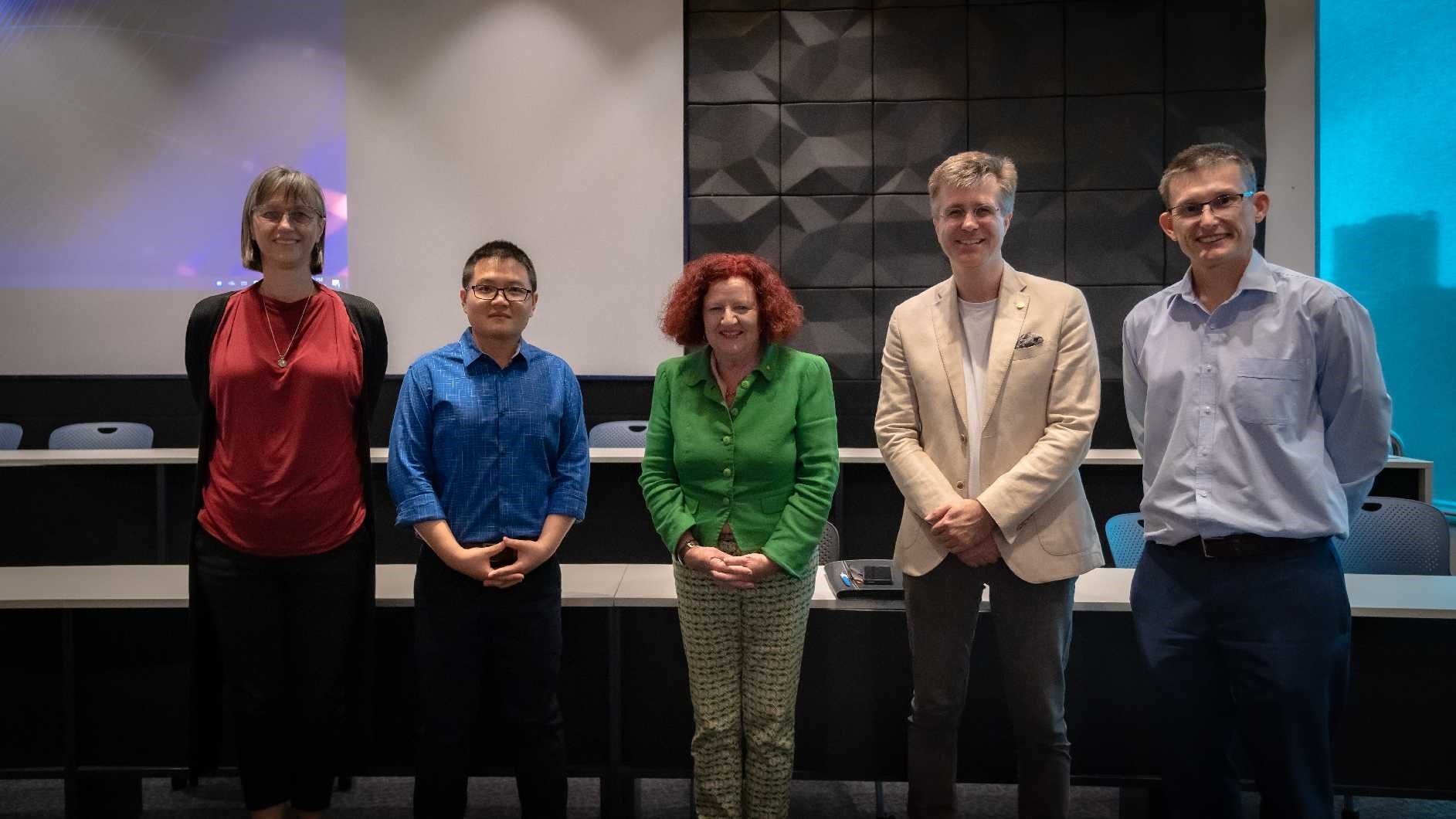QUT has joined forces with Germany’s Max Planck Institute, one of the world’s foremost scientific institutions, to establish the QUT/MPI joint laboratory.
The joint laboratory will merge research to target issues of national and global significance by developing greener catalytic systems for more sustainable manufacturing processes in Australia and Germany.
Led by co-directors QUT’s Professor Jingsan Xu and Professor Markus Antonietti, Max Planck Institute of Colloids and Interfaces, the laboratory will bring together researchers from across disciplines with complementary expertise and provide a platform for researchers to build on their careers.
QUT Deputy Vice-Chancellor, Research, Australian Research Council Laureate Fellow Professor Christopher Barner-Kowollik said the research synergies between QUT and the Max-Planck Institute of Colloids and Interfaces would target catalysis research for a greener world.
“The collaboration entails in-depth studies into nano catalysis fusing the research strength of each partner and will strengthen our bonds with the Max-Planck Institute,” Professor Barner-Kowollik said.
“QUT’s engagement with the Max-Planck Institute as a leading international research organisation is critically underpinned by research internship opportunities for PhD scholars at both institutions,” Professor Barner-Kowollik said.

Research projects will include re-purposing materials from batteries so they can be used for water electrolysis to produce green hydrogen when powered by renewable energy sources, led by Professor Anthony O’Mullane and Dr Monireh Khosravi.
Professor Hongxia Wang will work on discovering cost-effective materials for CO2 reduction, addressing the important global issue of climate change and greenhouse emissions.
Professor Dmitri Goldberg and Dr Konstantin Firestein will work on heterogeneous catalysts while Professor Jingsan Xu and Professor Dongchen Qi will work on research titled: Carbon Nitride as Substrates for New Catalysts.
QUT Vice-Chancellor Professor Margaret Sheil said the collaboration was a great example of the university building strong, trusting partnerships for the long-term.
“QUT and the Max Planck Institute for Colloids and Interfaces are ideally suited to form this close collaboration and will target issues of national and global significance,” Professor Sheil said.






